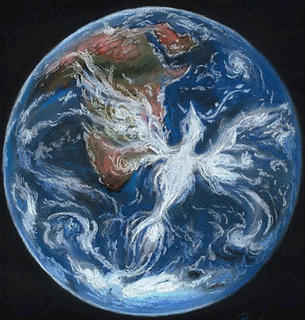
The Christian Science Monitor reports:
[A] three-year study by a group of international researchers... find[s] that the world is witnessing fewer wars - and those wars that do occur are killing fewer people."We knew the number of wars was coming down, because that has been around in academic circles for a while, but particularly surprising is how the decline in wars is reflected right across the board in all forms of political conflict and violence," says Andrew Mack, head of the Human Security Center at the University of British Columbia. He directed the team that delivered the report.
That means that not only are interstate wars down, but so are civil conflicts, as well as other forms of political violence like human-rights abuses.
The report finds that the total number of conflicts declined by 40 percent since the cold war ended. The average number of deaths per conflict has also declined dramatically, from 37,000 in 1950 to 600 in 2002. The study found 25 civil conflicts last year - the lowest number since 1976.
This completely turns on its head the conventional wisdom that the Cold War was a time of relative stability enforced by the superpowers and that the world today is much more dangerous. Now the big question:
Why is global violence decreasing?
The study was conducted by the Center for Human Security at UBC, headed by Andrew Mack, former "Director of Strategic Planning" at the UN, so quite naturally it credits the improvement to actions of that body. [For a video presentation on the subject of the UN's role in reducing violence by Mack himself, go here]
The report credits an "explosion of efforts" in conflict prevention and peacebuilding. The number of UN "preventive diplomacy" missions and government-based "contact groups" aimed at resolving conflicts has risen sharply in the last decade.Somehow I find that explanation both self-serving and inherently implausible, but there are others:
Then there's the Fukayama position, that the spread of democracy has promoted peace.
"Yes there are caveats, but generally the growing number of democracies in the world reduces the number of countries to fight," says Richard Stoll, a political scientist at Rice University in Houston.This idea at least has the advantage of addressing both the decline in international conflicts and the lessening of internal conflicts within nations. Democratic empowerment is a powerful check on oppression.
Then there is the nebulous invoking of the weight of world opinion.
The increasing weight of world opinion and action is also having an impact on leaders and warlords who in another era would have felt no constraints on warmaking, says John Norris, a senior adviser with the International Crisis Group in Washington.He continues:
Here the problem is the continuing demonstrated ineffectiveness of "world opinion" to deal with crises, not just in the "nineties," but in places today like Darfur and Zimbabwe."There is an international rallying to the notion of a need to protect populations that are threatened in their own borders; it's gained some traction," say Mr. Norris. He notes that international actions against high-profile violators like Serbia's Slobodan Milosevic or Liberia's Charles Taylor have had an impact.
"The world has sent a message to the warlords and despots," he says, "and we've seen modified behavior from people who were engaged in the worst sorts of abuses."
Norris says failures in Rwanda, the Balkans, and Sierra Leone in the 1990s taught the international community what doesn't work. Peacekeeping operations are now "more robust, and we're generally better at postconflict activities."
So far all we have is general assertions underlaid by faith-based assertions. What is needed is a systematic identification of specific mechanisms brought to bear on specific crises and their results. So far little has been done in that regard.
Finally the report addresses the profound gap between public perception and documented reality. Why should people widely disbelieve clear evidence that the situation is improving?
The article offers three answers.
1) that old standby, the media which systematically misrepresents the true situation in order to boost ratings and profits [in other words it's the capitalists, stupid].
2) the public is slow to react to new information. It will take time for the good news to sink in [in other words the people are stupid].
3) perpetrators of violence are getting better at attracting attention to themselves, as for instance by targeting aid workers, and this increases the public perception of rising violence. This, at least, offers the possibility of a counter-strategy of hardening obvious targets.
Read the whole thing. It's well worth your time.
The AP report has some more information here.
The full report can be read here.
RELATED????
AP reports:
WASHINGTON - The nation's murder rate declined last year for the first time in four years, dropping to the lowest level in 40 years. Experts said local rather than national trends were mostly responsible. [of course, wouldn't want to give the administration any credit]
The rates for all seven major crimes were down and the overall violent crime rate reached a 30-year low, according to the FBI's annual compilation of crimes reported to the police
Read it here.
One might think that this was the dawning of the Age of Aquarius.
No comments:
Post a Comment